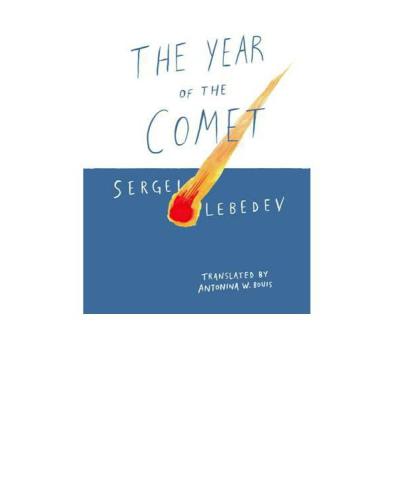
The Year of the Comet
کتاب های مرتبط
- اطلاعات
- نقد و بررسی
- دیدگاه کاربران
نقد و بررسی

January 2, 2017
Lebedev (Oblivion) delivers a remarkable bildungsroman, set against the decline of the Soviet Union. The nameless narrator, a young boy yearning for anonymity and seclusion, reflects on his past and relatives in an attempt to find truth and a better understanding of himself. In doing so, he also tells the story of Soviet rule. When he discovers Grandmother Mara’s old edition of the Great Soviet Encyclopedia, he notices the book includes names and places he has never heard mentioned. These vanished entries spur the protagonist to acknowledge his homeland’s fractured identity and to become more aware of the narratives that dictate his life. The appearance of Mister, a serial killer targeting young children, disrupts the rhythms of obeying power and pushes the narrator to pay attention to hints of the nation’s inevitable collapse. Like Lebedev’s previous novel, this book centers on one’s attempt to recover the past from a powerful governing narrative. Antonia W. Bouis’s deft translation captures Lebedev’s striking prose. The novel is packed with symbolism: “Every object means something, says something, increases the danger that threatens the hero or mitigates it,” the narrator muses. The plot remains widely relatable in depicting conflicts of consciousness—the speaker’s attempts to reconcile the contradictions between ideology and individuality. This is a smart, convincing, and affecting novel.

Starred review from December 1, 2016
Lebedev follows up Oblivion (2016), his powerful novel about the atrocities of the gulag, with this autobiographical tale of a boy's coming-of-age during the years leading to the fall of the Soviet Union.A "child of an earthquake" who was shaken from his mother's womb in Moscow by tectonic waves emanating from Bucharest, our unnamed protagonist spends much of the novel trying to shake the unsettled state into which he was born. The unspoken past, his country's and his family's, is no mere backdrop for his adventures. The ghostly mysteries of the Stalin era and its aftermath impinge on his every thought and feeling, intensified by his discovery of simple objects that provide clues to his family's participation in those events. The boy is largely raised by his war-widowed grandmothers, one of peasant stock, the other from a noble line, both tied in different ways to the Communist Party. As the system unravels, chaos increasingly infects people's lives, as does a "tyranny of necessities" emblematized by the ready availability of shoes but not spare shoelaces. The Chernobyl disaster deepens our hero's free-floating fear and intensifies his desire to create his own alternative reality. He pursues a friendship with an enigmatic adult named Ivan and risks contact with a child killer called Mister who is on the loose outside his family's dacha. While the latter half of the book has a certain romantic streak in introducing the hero to personal freedom, or at least the possibility of letting down his guard, the obsessive early sections boast such a relentless, close-in intensity the effect can be claustrophobic. But it's a good kind of claustrophobia: you read and reread Lebedev's lyrical, cutting prose with equal amounts of awe and enjoyment. This gorgeously written, unsettling novel--a rare work about the fall of the Soviet Union as told through the eyes of a child--leaves us with a fresh understanding of that towering moment in recent history.
COPYRIGHT(2016) Kirkus Reviews, ALL RIGHTS RESERVED.

Starred review from December 1, 2016
Like his excellent Oblivion, Lebedev's absorbing new work opens with a steadily building account of growing up Soviet. Like those around him, the young narrator must carry the weight of the past--in particular, the consequences of a war that wiped out millions--even as he negotiates the stringent everyday. (Grandmother Tanya gives him a little statue that shows "how people really live--see nothing, hear nothing, say nothing.") He's torn between wanting to be a Soviet hero and learning his antecedents, even as he feels stifled by his family. Then comes 1986, the fateful year of Haley's Comet and Chernobyl, serious omens indeed for a boy always looking for them. Tension ratchets up further with "The Summer of Mister," as the narrator is befriended by an older boy he worships and decides to go after the pedophile killer he's convinced that only a child can see. In the end, he grows up, sadder, wiser, yet "born anew." VERDICT A seamlessly written child's-eye view that conveys an adult understanding of history's burdens.
Copyright 2016 Library Journal, LLC Used with permission.

























دیدگاه کاربران